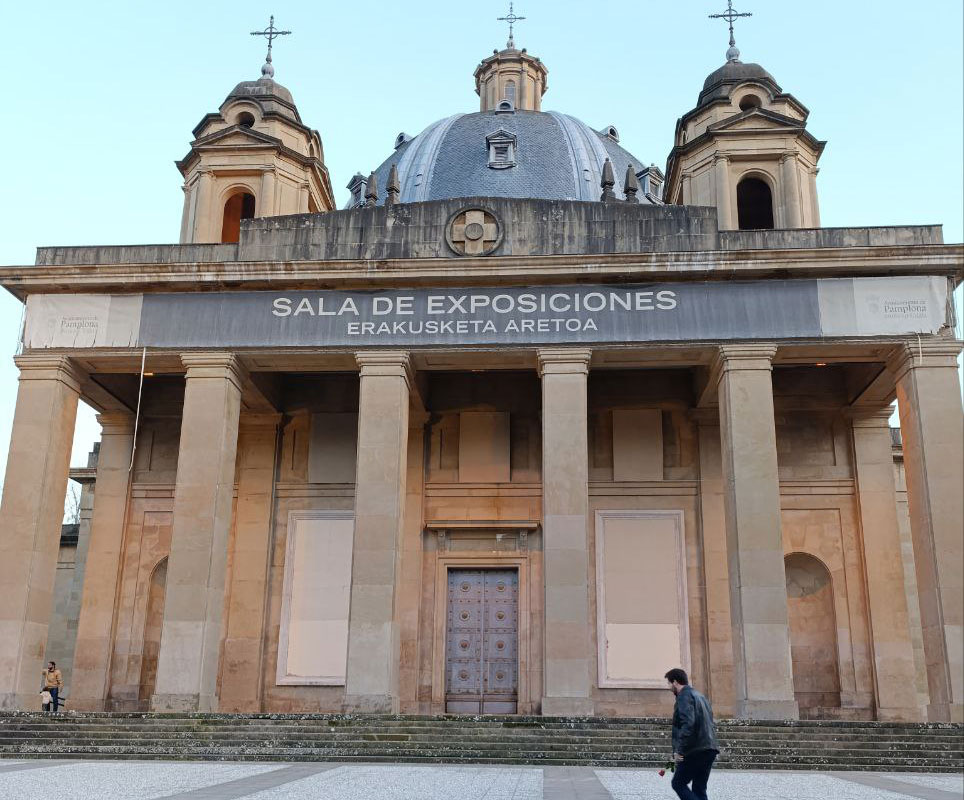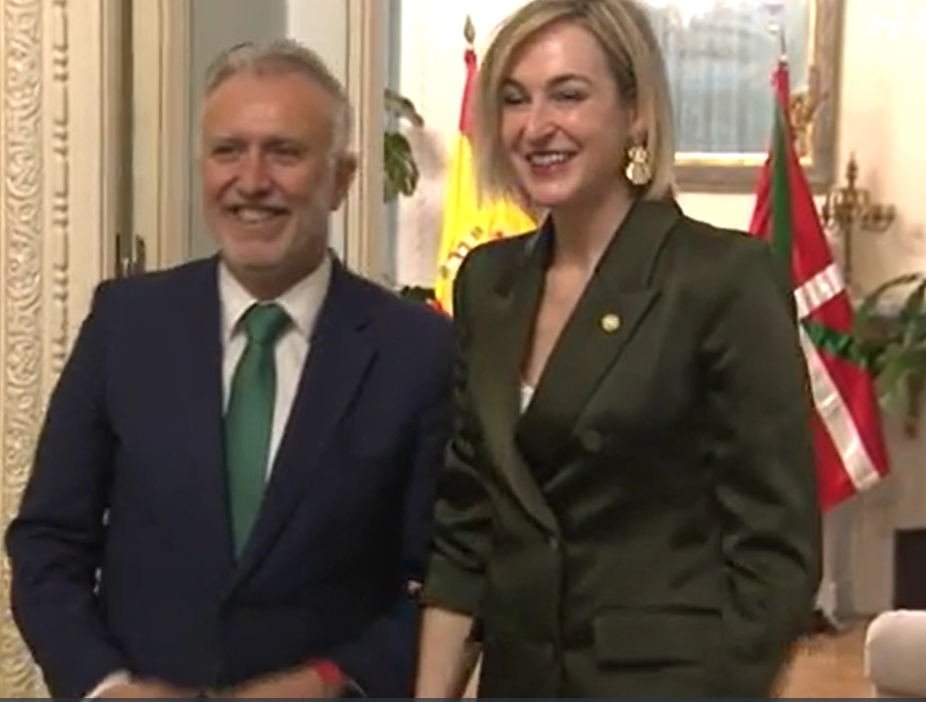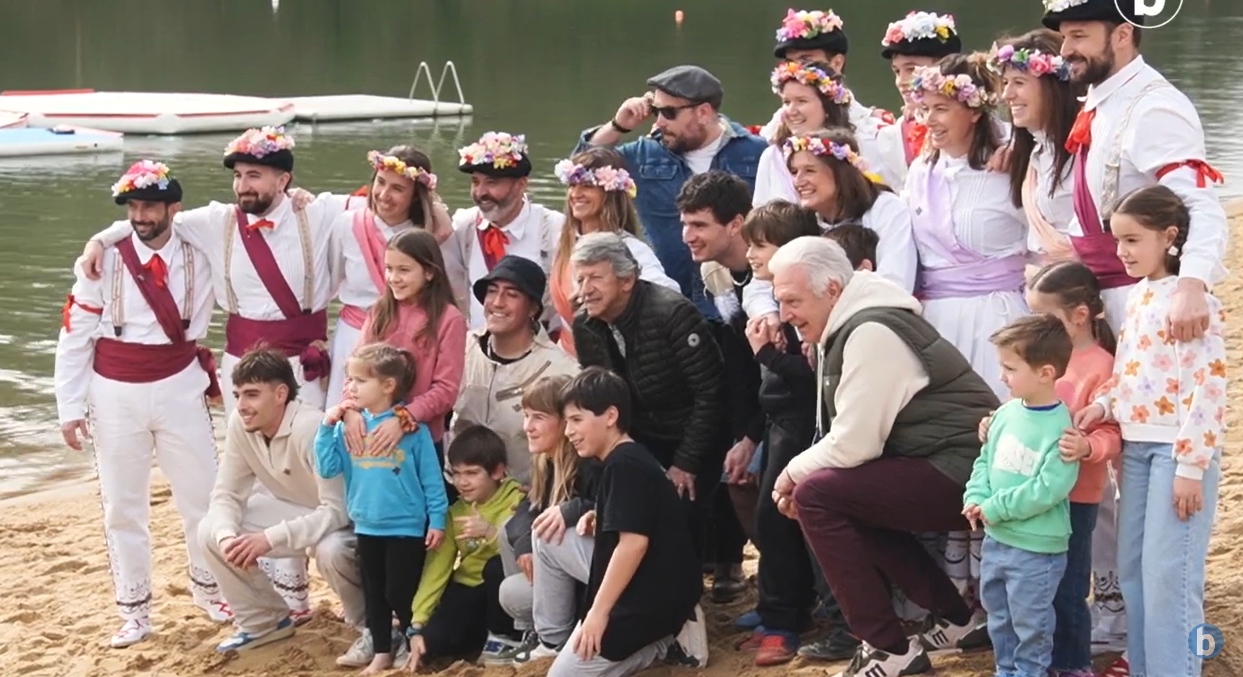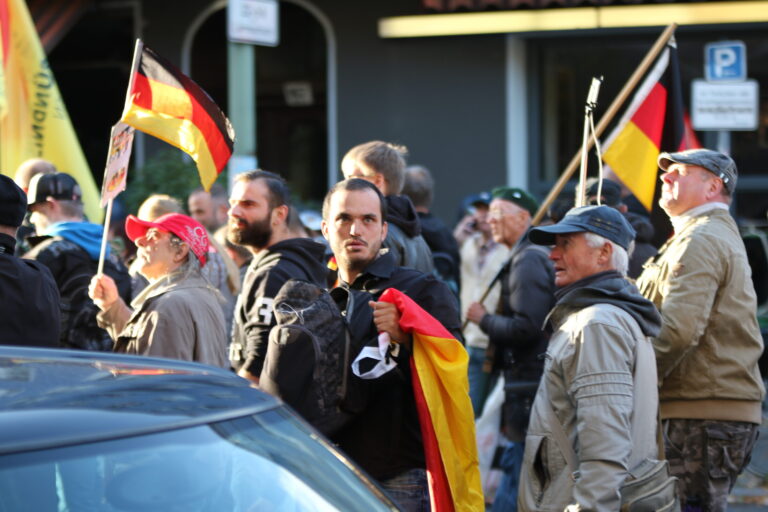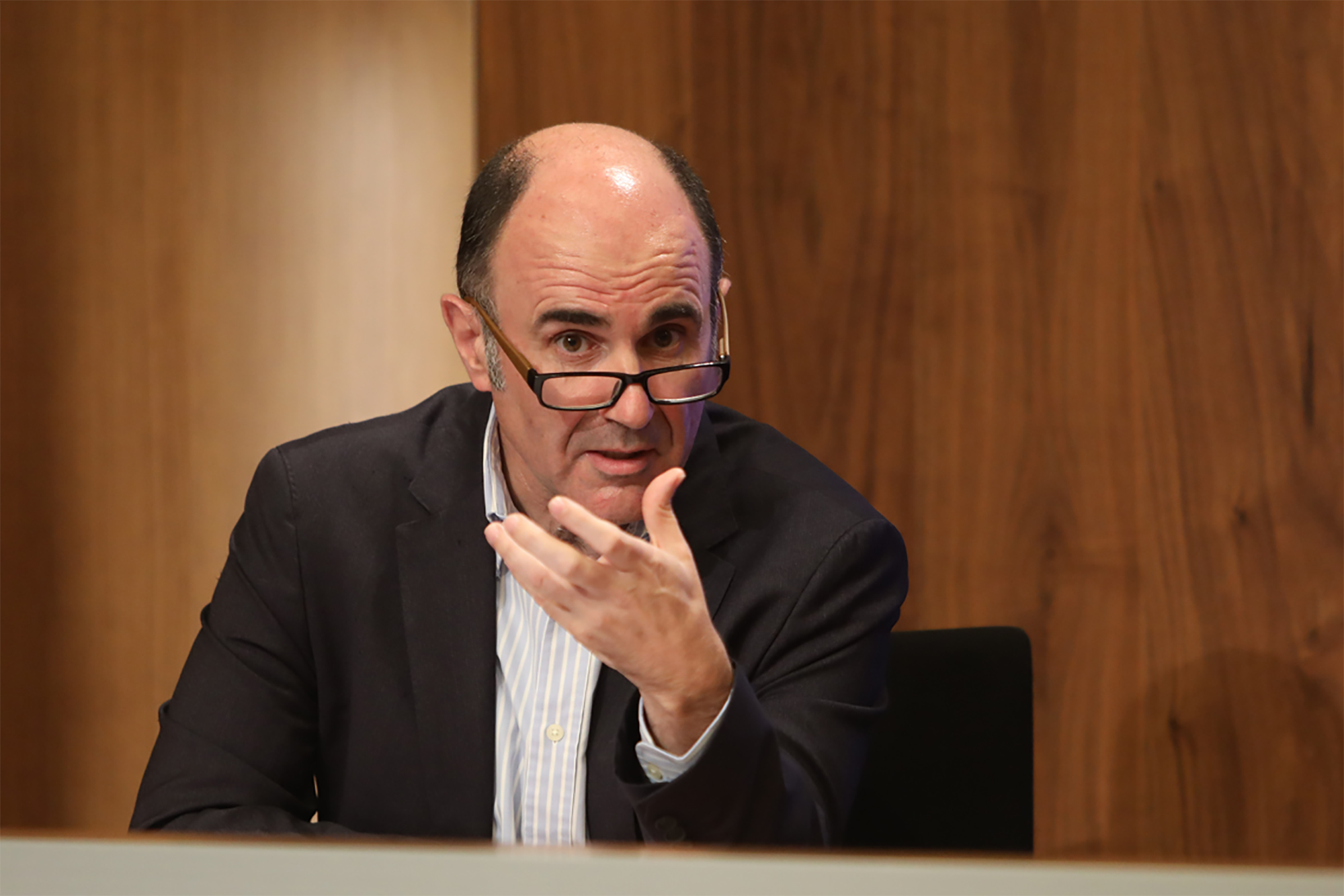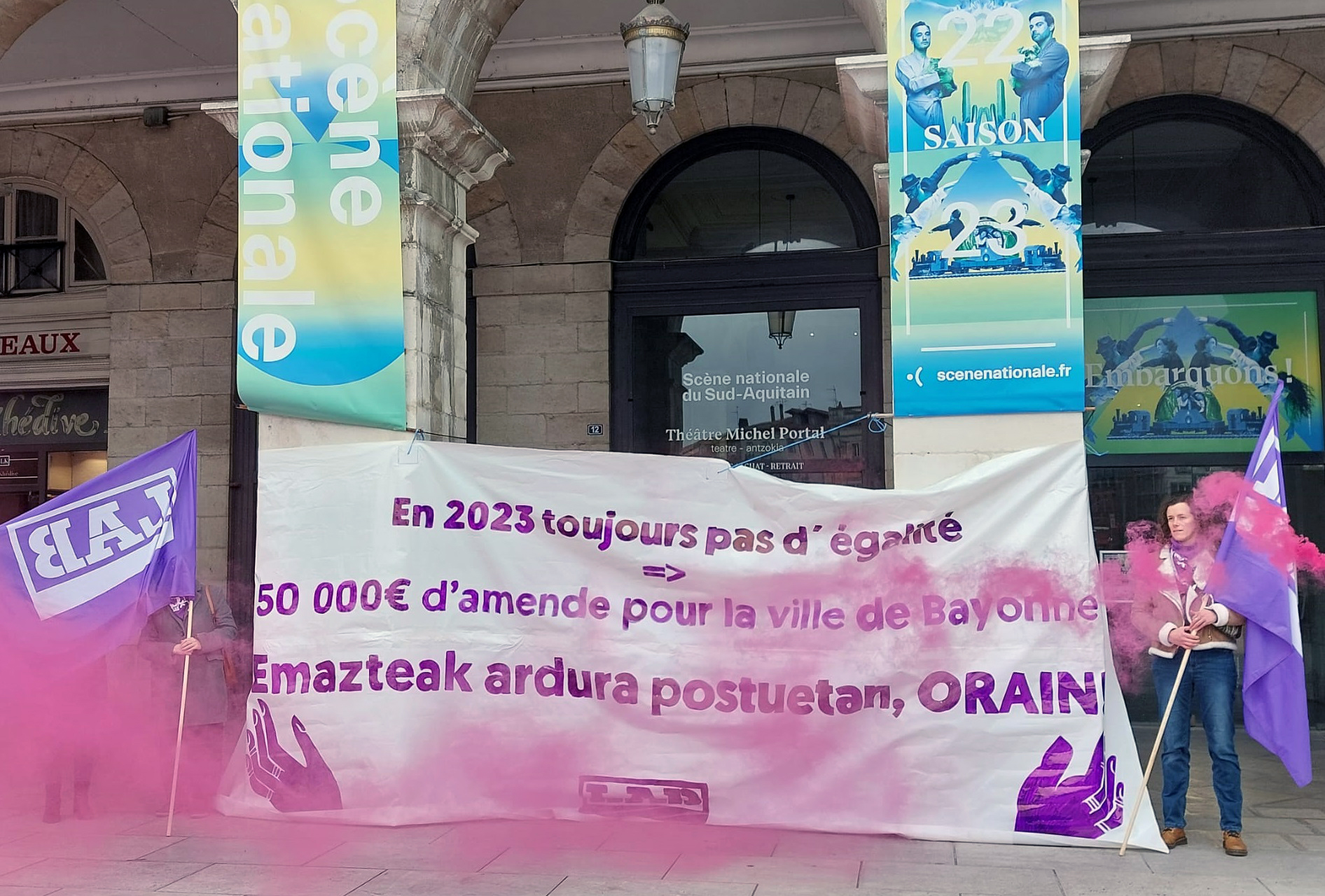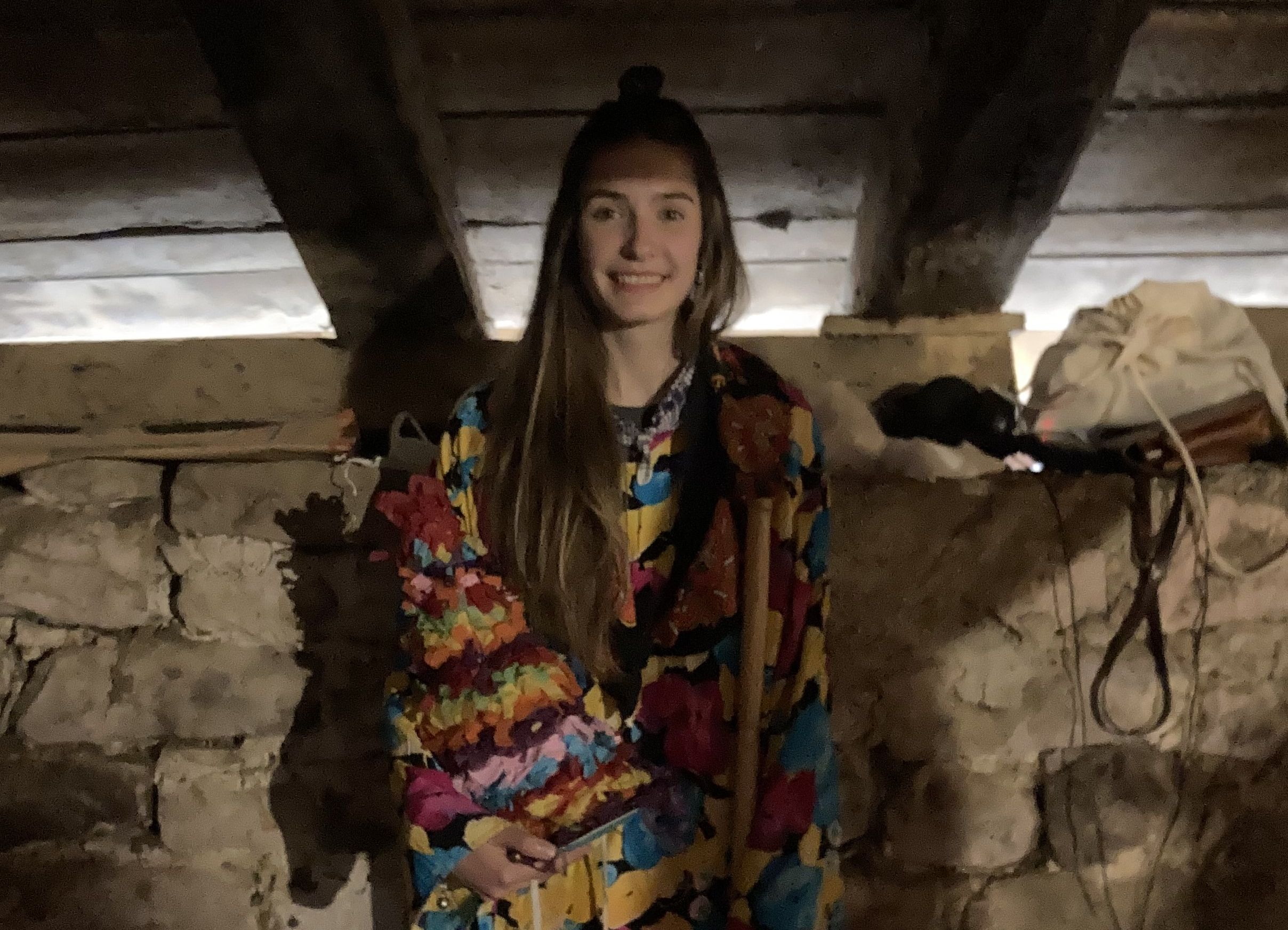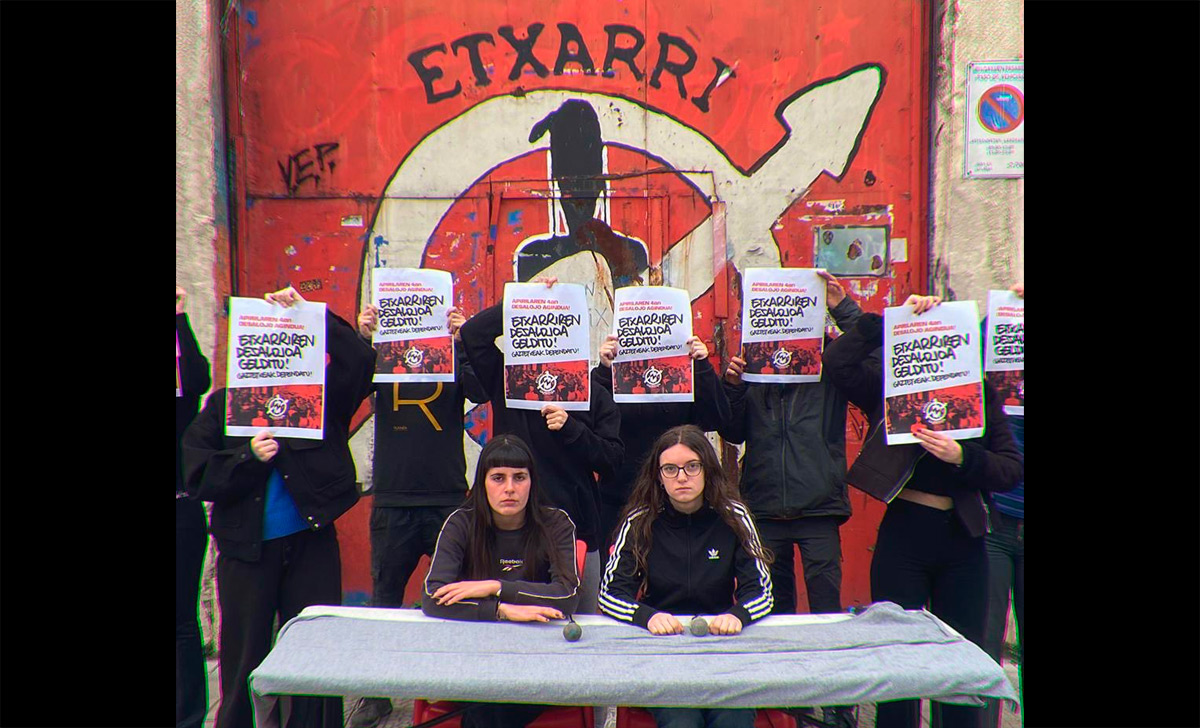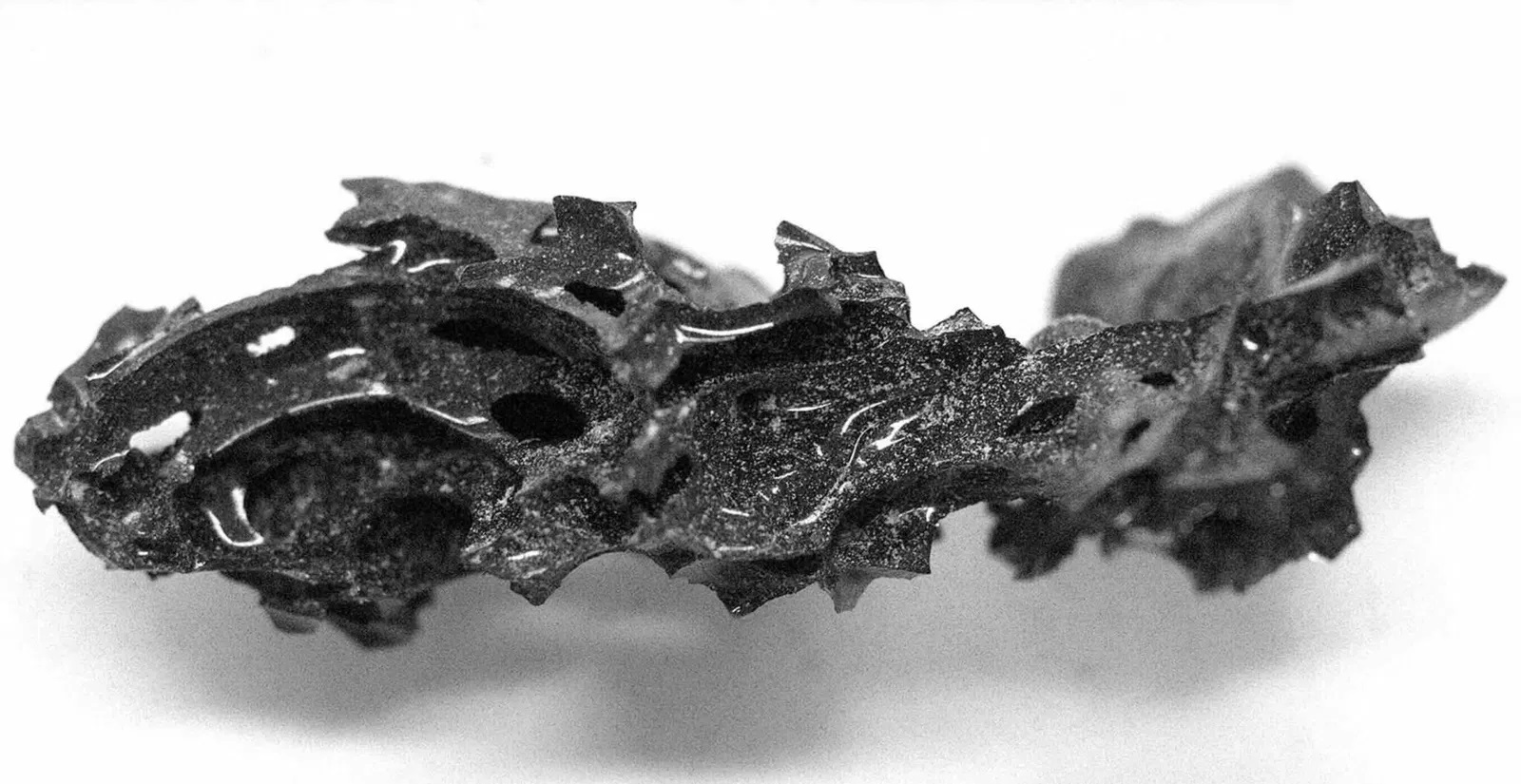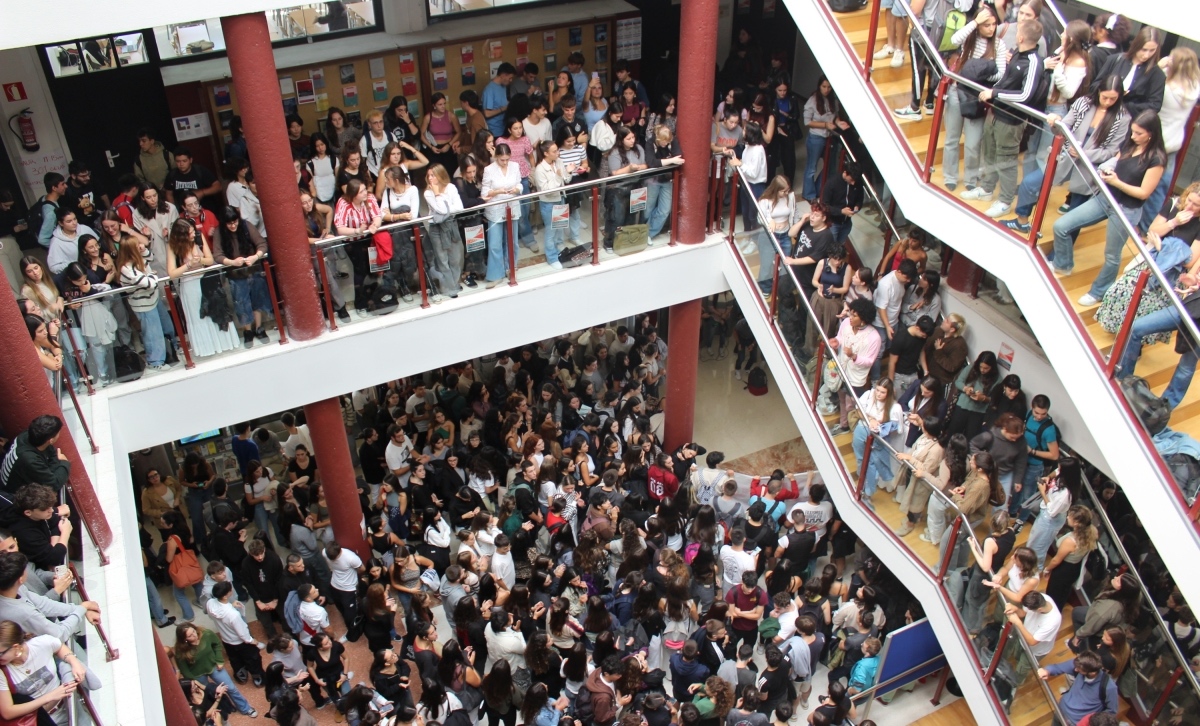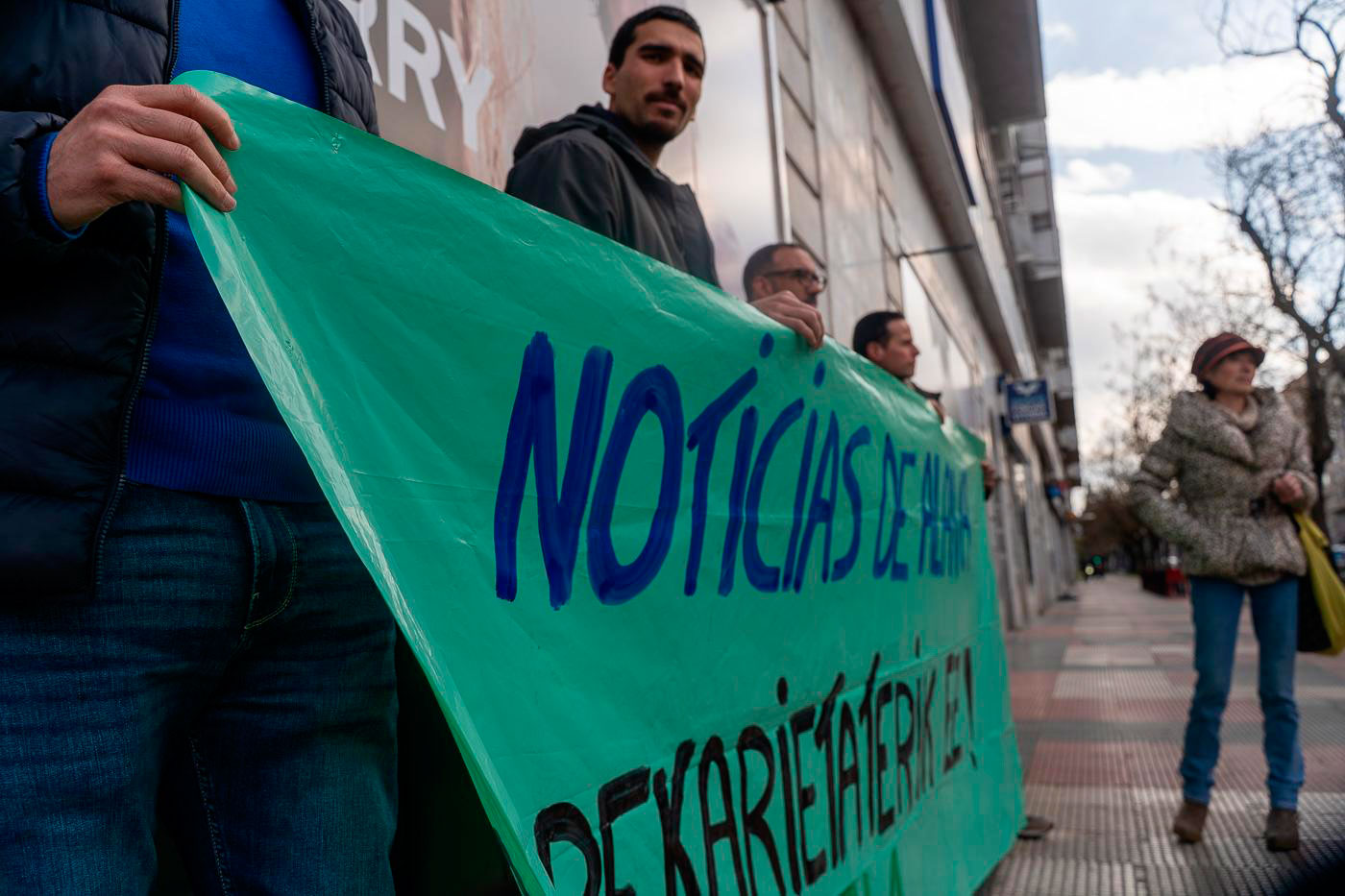"The time will pass before the Return operation is over"
- Operation Return, by Josefina Campos, has nothing to do with the movement of cars. Those shot in the ditches during the 1936 war, those buried in the hidden place, have worked to return to the cemetery of Peralta. [The Peralta rifles, the return home (1936-1978)].
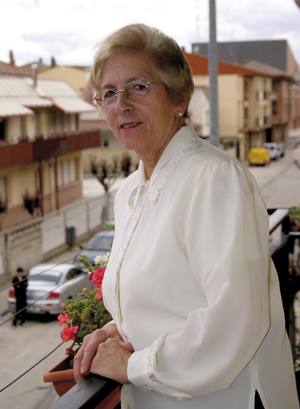
You told me first of all that you had lived through a difficult time. Many deaths have accumulated at home in a very short time, faith has helped you.
I'm a very believer, I believe only half in priests, but I firmly believe in God. Regardless of what the Church did during the war, I know that one day they will be judged and judged harshly in this world or in the other. The Church will not take away my faith. When I go to Mass I will not listen to the priest who pronounces Mass, but because God established the Eucharist. I have already said, neither by the priests nor by the Church, because I find it increasingly difficult to accept that institution. As for faith, I'm like my father. My father saw them red, had them in concentration camps, found them in prison in Pamplona… After the war, he was put into paralysis when he was operated in the military hospital of Pamplona. Of course that was what had operated on him! A surgeon! More than one had remained paralyzed after breaking the spinal cord with a spike. A canalla, actually, that surgeon. My father is forever invalid. However, he said: "I do not believe in heaven's God, but in the Virgin! For the red tiles, don’t ask me to believe in anyone!” I had seen the red and black faces!
Your father saw the Reds and the Blacks, you have also suffered…
Yes. Then you realize what's going on around you. I studied at a school in the Phalanx, in Pamplona, in Santa Maria la Real. In times of social affairs, the reds were red, ugly, corpulent, rocky, like flax. I was 8 years old, I knew my father and mother were red, but they were neither ugly nor bad. My mother was a dresser, a lot of people came to her house, they appreciated it. When we were in school, the nuns behaved very differently than we were daughters of the Reds, and with the others, daughters of the ones who pulled the trigger. In the same school, at night, in the large bedrooms, where the guarded nuns were removed, we used to talk the daughters of the reds, girls! And we were tormented by the confusing stories of our peoples, of our homes, of our personal stories. There were all the towns of the Ribera: Valtierra, Pitillas, Cáseda, Falces, Peralta, Arguedas, Villafranca, Marcilla… We had the way to get rid of ourselves.
You were telling you what you had heard at home. In many houses, nothing was told, in theirs.
Count? My father would also sing me International! More than a war song! It was counted in our own. Because he was our paralytic father, he spent his time at home. My mother, who was a seamstress, was also at home, and people were coming home. And they would talk, and we would listen, until we finally got to ask. It was rejection of the Church. Bad conversations with some priests! We didn't understand it and we asked. And they answered us. Many women came to our house, and on more than one occasion they cried with rage. Many relatives also came to us. Indeed, in both my father's and my mother's family, we had shot them in the war. How weren't they going to talk about him? In case of force majeure. However, it is true that in some houses they counted it and in others they did not. These are ways of acting, each of which has its own. Among us, Mom said nothing.
Your grandmother, your mother's mother, was Filomena.
Yes. I once told my mother: “What does Amatxo say about war?” “My grandmother does not talk about it more than with me, when we are the two alone. And when we talk about that, my grandmother cries." He said: "Cabrons! You took me such a sweet son!” On the other hand, my mother had a younger sister who had her hair cut off during the war. Our aunt, accompanied by “good-dad” daughters, tried not to say anything in front of her when she was with her friends. The aunt kept nothing inside. "If I had something to say," he said.
You have said “daughters of good father.” In one, families “of good father”; in the other, red, persecuted. Some families were also particularly punished.
Yeah, that's what I realized I was writing the book. They went looking for such a family, because they were socialists, or members of the UGT, or whatever. They were shot, their hair cut, imprisoned… They were punished by the whole family. The moment they were going to shoot at his uncle, his grandmother, Filomena, he stood in front of the shotguns. The mother was on the balcony, looking, and she saw everything. Our mother started screaming, just like another neighborhood. Then the practitioner of the people – the requeté, however – stood in front of him. And fortunately, he refused to kill anyone. “Come back home before something worse happens.” And so on. And the one who was going to shoot, a miserable bloody, ordered him to leave. The other work that the practitioner had, the miserable canalla, who was put in his head that all the women who had cut their hair were going to wash them at Christmas. The practitioner prevented this bleeding.
We are in 1936, a time of war.
Yes. And then the authorities! Maybe they didn't kill anyone, but I don't care, because the others sent him to be killed. It's the same for me. One of my aunts said about those dignitaries: “They were miserable!” I do not forgive: "Get away, miserable! They had money, they corrected everything. Poor? Not much less!”
In the book you do not mention the name of executioner, reluctantly.
Yes. I have only put on paper the names that appear in the official documents: in the war commission, in the carlists commission, in the plenary of the time… Only their names. On the contrary, I have not named the executioners of Peralta, because many of them married the children of the shot. As our parents said, “no one’s children are not to blame for the perfidities of the parents.” That's where I am. Moreover, there are two children who have been shot in your family and you are from New Force! In 1981, for a rate, a huge assembly was assembled, and luckily there were one on the right and one on the left, which paralyzed the struggle. I'll tell you: these were two girls wearing a chip with the ikurrina on the wrist watch. These New Force wanted to go and take the ikurdistan out of them and, what is clear, they scratched them and scratched their skin. It happened in the town square, here in Peralta, and those of New Force also took guns. If his grandfather had raised his head, he would have given them great clubs.
What happened in 1978 when Marcilla's news was read in the newspaper? “Tribute to 38 people shot in times of war,” the news said.
Now I don't get newspapers, but then I do. He used to read at dusk. I read Marcilla's and read it ten times. They got into bed and, of course, they couldn't master sleep. I wanted to do what they did in Marcilla in Peralta. I did. There was a great unity around it in our people. He was a man, father and father-in-law who was shot and said to us, “I didn’t even know them!” And I had contributed nothing but money. Another woman also quit our job. She was a widow, married for the second time: her father, her brother, her husband - the three killed at the same time - and another brother killed in the Ebro. I had four deaths! We knew they were buried near Carrascal, but nothing else. That woman had not given permission to unearth anyone. He said he knew where they were buried, but he wouldn't tell us. “Even if you do not tell us, we will find it quiet,” he replies. “If you find them, leave one,” he told us. “What? Don't even think about it. With or without your consent, we will all get out in the same way. You have three children, and even if you don’t want to, I’m sure they want everyone to come out!” Finally, when the burial was held, I wrote to him in crude tone: “Your children bring blood from the dead in their veins. It is your duty to inform them.” And he communicated it to him, and they went to the burial. Furthermore, Peralta has not shown itself against the shooting being exhumed.
Great unity among victims, except for exceptions. How did those who were executioners or their successors take it?
There was everything, but to begin with, it has to be said that all the murderers have left this world. They're all dead. On their feet, on the other hand, there is everything. There are some that would do the first one again. Again a girl told me: "Look, Josefina! If you knew what I wanted. I would take them to the door of the cemetery and ask them what they would do if they didn’t know where their father or mother was buried.” Yes, yes, stop! However, we have lived fairly well with each other in the village. There is a good atmosphere, especially since the murderers have disappeared.
You have already made the book, the memorials of the shot and disappeared have been made, the law has been made... Has the “Operation Return” been completed?
No, it is not over, and time will pass before it is over. In Navarre we were so lucky, because we met many peoples, and they could do nothing against us. Like the Korellan. If they could have stuck with us, but we were over 3,000 people at the demonstration.
Josefina Campos Orduña (Azkoien, 1942) jostuna izan da lanbidez. Errepublikarra zuen familia, gerra ondoan gogotik zigortua. Ama Dolores zenari senargaia, anaia bat eta zenbait lehengusu hil zizkioten, eta hondo-hondotik moztu zioten ilea. Aita Eugenio zuena, Errepublikako sarjentu, preso izan zuten Carabanchelen (Espainia) eta Iruñean, eta lan behartuak egin zituen trenbidean Castejonen. Aitaren aldeko amona bera ere kartzelan izan zuten 68 urte zituela, eta hari ere hondo-hondotik moztu zioten ilea. Azkoienen fusilatu zituztenen oroimena berreskuratzeko lanean hasi zen 1978an, eta herriko 84 lagunen hobiak aurkitu zituzten. Itzulera operazioa izan zen.
“Sozialistekin zinez etsirik nago, fusilatu eta desagertuen auzian deus egin ez dutelako. Hilobien mapa eginen ote duten ari dira, baina hainbat urte izan dira agintean, eta ez dute deus egin, deus ez, lana zaildu ez bada. Orain, berriz, hilobiak seinalatuko omen dituzte, anitz desagertu direnean, Iruñean, Aosen eta Agoitzen bezala”.
33/2013 Foru Legeari Xedapen gehigarri bat gehitu zaio datozen aldaketak gauzatu ahal izateko, eta horren bidez ahalbidetzen da “erregimen frankistaren garaipenaren gorespenezkoak gertatzen diren zati sinbolikoak erretiratzea eta kupularen barnealdeko margolanak... [+]
2025 amaitu baino lehen Gernikako Estatutuan jasotzen diren eskumen guztiak izatea espero du Jaurlaritzak. Oraindik 25 eskumen falta dira. Transferentzia Batzordea aurreko astean biltzekoa zen baina "agenda arazoak" zirela eta atzeratu zuten.
Azken dantza hau izena du Duplak egin duen aurtengo abestiak eta Senpereko lakuan grabatu zuten bideoklipa. Dantzari, guraso zein umeen artean azaldu ziren Pantxoa eta Peio ere. Bideoklipa laugarrengo saiakeran egin zen.
“Kasu, ez gitxu lo!”. Gure denbora eta manerekin baina heldu gira.
Azaroaren 25ean Baionako elgarretaratzera joan ez joan eta autoak nola partekatu pentsatzetik (joan-jina bi oren), bat-batean Lartzabalen elgarretaratze bat antolatu genuen, eta 47 emazte bildu!... [+]
Alemaniako Poliziak asteleheneko gertakariaren arrazoiak "politikoak" zirela baztertu duen arren, 35 urteko Alexander Scheuermann Ring Bund talde neonaziko kide zen. Bi hildako eta hamar zauritu utzi dituen atentatuaren egileak sare sozialetan "gorroto mezuak"... [+]
“Bi pertsona mota daude munduan: euskaldunak, batetik, eta euskaldunak izan nahiko luketenak, bestetik”. Gaztea zela, Mary Kim Laragan-Urangak maiz entzuten omen zuen horrelako zerbait, Idahon (AEBak), hain zuzen. Ameriketan jaio, hazi, hezi eta bizi izandakoak 70... [+]
Martxoaren 8a, Emakumeen Nazioarteko Eguna, munduan zehar milioika emakumeontzat berdintasuna, eskubideak eta justizia eskatzeko borroka eguna da. Hala ere, gerrek, gatazkek eta politika militaristen hazkundeak markatutako testuinguru global batean, inoiz baino premiazkoagoa da... [+]
Geroa Baiko lehendakari eta Nafarroako lehendakariorde izandakoa enpresa bati 2,6 milioi euroko diru-laguntzak ustez modu irregularrean emateagatik zegoen auzipetuta, Davalor auzia deiturikoan. Nafarroako Probintzia Auzitegiak erabaki du auzia behin betiko artxibatzea, legalki... [+]
Nahiz eta Nazio Batuen Erakundeak (NBE) 1977an nazioarteko egun bat bezala deklaratu zuen eta haren jatorriaren hipotesi ezberdinak diren, Martxoaren 8aren iturria berez emazte langileen mugimenduari lotua da.
Euskal Herriko Bilgune Feministak deituta elkarretaratzea egin dute Hernanin Iratxe Sorzabali elkartasuna adierazi eta "babes osoa" emateko. Inkomunikatuta egon zen uneak berriz ere epailearen aurrean kontatu behar izatea, "bizi izandakoak utzitako ondorioen... [+]
Lantzeko inauteri txikien kalejira ikusle guztien begietara urtero modukoa izan zen. Txatxoak, Zaldiko, Ziripot eta Miel Otxin herriko ostatuko ganbaratik jaitsi eta herritik barna bira egin zuten txistularien laguntzarekin. Askok, ordea, ez zekiten une historiko bat bizitzen... [+]
Errekaldeko Gaztetxearen aurkako huste-agindua heldu da jadanik. Espazioa defendatzera deitu dute bertako kideek.
79. urtean, Vesubio sumendiaren erupzioak errautsez eta arrokaz estali zituen Ponpeia eta Herkulano hiriak eta hango biztanleak. Aurkikuntza arkeologiko ugari egin dira hondakinetan; tartean, 2018an, gorpuzki batzuk aztertu zituzten berriro, eta ikusi zuten gizon baten garuna... [+]
Leporaturikoa ez onarturik, eta sare sozialetako kontuak "lapurtu" zizkiotela erranik, salaketa jarri zuen Arabako campuseko Farmazia Fakultateko irakasleak. Gernikako auzitegiak ondorioztatu du ez dagoela modurik frogatzeko mezu horiek berak idatzitakoak diren ala ez.
Lan baldintzen "prekarietatea" salatzeko kontzentrazioa egin zuten asteartean egunkariaren egoitzaren aurrean. Abenduaren 2tik sindaura greban daude langileak eta mobizlizazioak "areagotzea" erabaki dute orain.











